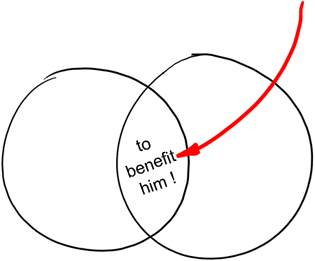The Circle Of Love
 In the wisdom of Kabbalah, the concept of “love” is common and very important. Since the days of Abraham, who wrote The Book of Creation, love accompanied the teaching that was given as the Torah to Moses. Secretly, it accompanied the following eras of the prophets and the scriptures, was reflected in The Book of Zohar, and came the entire way. Later, the concept migrated to Hassidism from Kabbalah even before it began to be revealed to the world as science.
In the wisdom of Kabbalah, the concept of “love” is common and very important. Since the days of Abraham, who wrote The Book of Creation, love accompanied the teaching that was given as the Torah to Moses. Secretly, it accompanied the following eras of the prophets and the scriptures, was reflected in The Book of Zohar, and came the entire way. Later, the concept migrated to Hassidism from Kabbalah even before it began to be revealed to the world as science.
However, it is still unclear to us because it is completely related to bestowal or rather, to mutual inclusion, to unity. In this way, the receiving desire annuls itself, obtains the ability to feel the desire of the other, and then it can work in a new way: fulfilling the desires of the other.
To make the friend’s desire my own, I need to be cleansed, that is, to transfer part of my desire to the state of Hafetz Hesed (HH) and subject everything else to self-annulment, the first restriction (Tzimzum Aleph – TA). In this case, I really include the friend’s desire into myself and can correct him. To do this, I raise our collective desire and request such a force that will allow me to satisfy his needs.
In this situation, I am called the “first-born who takes twice.” After all, I have a double request (x2). I request the force of fulfillment, sufficient to fulfill him as well.
It is possible to imagine this scheme differently in the form of three steps. Being in the middle, I go down (1), adopt the friend’s desires (2), raise his and my desires (1 + 2) upward (3), and get a response (4), the force produces a Zivug, and I give the friend what is necessary (5).
This is the “revolution” that we are realizing today: We address a wide audience, assimilate people’s desires, raise them in the center of the group, and from there to the upper upper one, and then we get a response which we use for bestowal.

How does it differ from the state of Hafetz Hesed? In this state, I do not “interfere” with the other; let him remain the way he is. I don’t make the slightest movement toward him. Like a gentlemen, I just follow the principle, “Do not do to others what is hated by you.”
On the other hand, love means that I want to give him fulfillment. By being included into him, I want to benefit him. With all my heart, I want to bestow to him so he will feel good.

[118466]
From the 4th part of the Daily Kabbalah Lesson 10/15/13, Writings of Baal HaSulam
Related Material:
My Teacher Is The Best!
He Who Doesn’t Ask For Himself Receives Twice As Much
The One Who Prays For His Friend Receives First







Discussion | Share Feedback | Ask a question